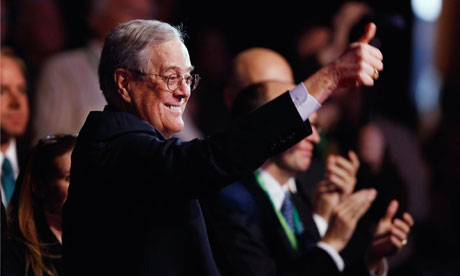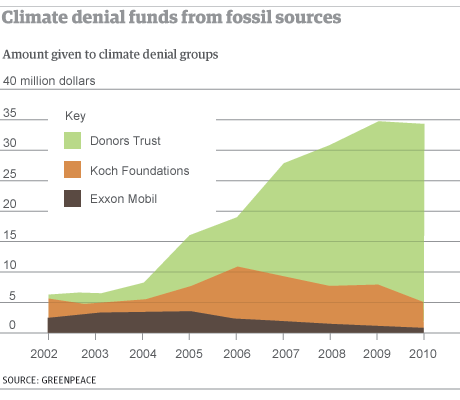Does Your Bomb-Proof Basement Have An Attached Toilet?
An execution carried out to thundering war clouds
What are the political consequences of the secret and sudden hanging of Mohammed Afzal Guru, prime accused in the 2001 Parliament attack, going to be? Does anybody know? The memo, in callous bureaucratese, with every name insultingly misspelt, sent by the Superintendent of Central Jail No. 3, Tihar, New Delhi, to “Mrs Tabassum w/o Sh Afjal Guru” reads:
The mailing of the memo was deliberately timed to get to Tabassum only after the execution, denying her one last legal chance—the right to challenge the rejection of the mercy petition. Both Afzal and his family, separately, had that right. Both were thwarted. Even though it is mandatory in law, the memo to Tabassum ascribed no reason for the president’s rejection of the mercy petition. If no reason is given, on what basis do you appeal? All the other prisoners on death row in India have been given that last chance.
Since Tabassum was not allowed to meet her husband before he was hanged, since her son was not allowed to get a few last words of advice from his father, since she was not given his body to bury, and since there can be no funeral, what “further necessary action” does the jail manual prescribe? Anger? Wild, irreparable grief? Unquestioning acceptance? Complete integration?
After the hanging, there have been unseemly celebrations. The bereaved wives of the people who were killed in the attack on Parliament were displayed on TV, with M.S. Bitta, chairman of the All-India Anti-Terrorist Front, and his ferocious moustaches playing the CEO of their sad little company. Will anybody tell them that the men who shot their husbands were killed at the same time, in the same place? And that those who planned the attack will never be brought to justice because we still don’t know who they are.
“The mercy petition of Sh Mohd Afjal Guru s/o Habibillah has been rejected by Hon’ble President of India. Hence the execution of Mohd Afjal Guru s/o Habibillah has been fixed for 09/02/2013 at 8 am in Central Jail No-3.
This is for your information and for further necessary action.”
The mailing of the memo was deliberately timed to get to Tabassum only after the execution, denying her one last legal chance—the right to challenge the rejection of the mercy petition. Both Afzal and his family, separately, had that right. Both were thwarted. Even though it is mandatory in law, the memo to Tabassum ascribed no reason for the president’s rejection of the mercy petition. If no reason is given, on what basis do you appeal? All the other prisoners on death row in India have been given that last chance.
Since Tabassum was not allowed to meet her husband before he was hanged, since her son was not allowed to get a few last words of advice from his father, since she was not given his body to bury, and since there can be no funeral, what “further necessary action” does the jail manual prescribe? Anger? Wild, irreparable grief? Unquestioning acceptance? Complete integration?
After the hanging, there have been unseemly celebrations. The bereaved wives of the people who were killed in the attack on Parliament were displayed on TV, with M.S. Bitta, chairman of the All-India Anti-Terrorist Front, and his ferocious moustaches playing the CEO of their sad little company. Will anybody tell them that the men who shot their husbands were killed at the same time, in the same place? And that those who planned the attack will never be brought to justice because we still don’t know who they are.
|
Meanwhile, Kashmir is under curfew, once again. Its people have been locked down like cattle in a pen, once again. They have defied curfew, once again. Three people have already been killed in three days and fifteen more grievously injured. Newspapers have been shut down, but anybody who trawls the internet will see that this time the rage of young Kashmiris is not defiant and exuberant like it was during the mass uprisings in the summers of 2008, 2009 and 2010—even though 180 people lost their lives on those occasions. This time the anger is cold and corrosive. Unforgiving. Is there any reason why it shouldn’t be?
For more than 20 years, Kashmiris have endured a military occupation. The tens of thousands who lost their lives were killed in prisons, in torture centres, and in ‘encounters’, genuine as well as fake. What sets the execution of Afzal Guru apart is that it has given the young, who have never had any first-hand experience of democracy, a ringside seat to watch the full majesty of Indian democracy at work. They have watched the wheels turning, they have seen all its hoary institutions, the government, police, courts, political parties and yes, the media, collude to hang a man, a Kashmiri, who they do not believe received a fair trial. With good reason.
He went virtually unrepresented in the lower court during the most crucial part of the trial. The court-appointed lawyer never visited him in prison, and actually admitted incriminating evidence against his own client. (The Supreme Court deliberated on that matter and decided it was okay.) In short, his guilt was by no means established beyond reasonable doubt. They have watched the government pull him out of the death row queue and execute him out of turn. What direction, what form will their new cold, corrosive anger take? Will it lead them to the blessed liberation they so yearn for and have sacrificed a whole generation for, or will it lead to yet another cycle of cataclysmic violence, of being beaten down, and then having ‘normalcy’ imposed on them under soldiers’ boots?

Afzal Guru family weren’t given the President’s reasons for rejecting his mercy plea. (Photograph by Getty Images, From Outlook 25 February 2013)
All of us who live in the region know that 2014 is going to be a watershed year. There will be elections in Pakistan, in India and in the state of Jammu and Kashmir. We know that when the US withdraws its troops from Afghanistan, the chaos from an already seriously destabilised Pakistan will spill into Kashmir, as it has done before. By executing Afzal Guru in the way that it did, the government of India has taken a decision to fuel that process of destabilisation, to actually invite it in. (As it did before, by rigging the 1987 elections in Kashmir.) After three consecutive years of mass protests in the Valley ended in 2010, the government invested a great deal in restoring its version of ‘normalcy’ (happy tourists, voting Kashmiris). The question is, why was it willing to reverse all its own efforts? Leaving aside issues of the legality, the morality and the venality of executing Afzal Guru in the way that it did, and looking at it just politically, tactically, it is a dangerous and irresponsible thing to have done. But it was done. Clearly, and knowingly. Why?
I used the word ‘irresponsible’ advisedly. Look what happened the last time around.
In 2001, within a week of the Parliament attack (and a few days after Afzal Guru’s arrest), the government recalled its ambassador from Pakistan and dispatched half a million troops to the border. On what basis was that done? The only thing the public was told is that while Afzal Guru was in the custody of the Delhi Police Special Cell, he had admitted to being a member of the Pakistan-based militant group, Jaish-e-Mohammed (JeM). The Supreme Court set aside that ‘confession’ extracted in police custody as inadmissible in law. Does what is inadmissible in law become admissible in war?
For more than 20 years, Kashmiris have endured a military occupation. The tens of thousands who lost their lives were killed in prisons, in torture centres, and in ‘encounters’, genuine as well as fake. What sets the execution of Afzal Guru apart is that it has given the young, who have never had any first-hand experience of democracy, a ringside seat to watch the full majesty of Indian democracy at work. They have watched the wheels turning, they have seen all its hoary institutions, the government, police, courts, political parties and yes, the media, collude to hang a man, a Kashmiri, who they do not believe received a fair trial. With good reason.
He went virtually unrepresented in the lower court during the most crucial part of the trial. The court-appointed lawyer never visited him in prison, and actually admitted incriminating evidence against his own client. (The Supreme Court deliberated on that matter and decided it was okay.) In short, his guilt was by no means established beyond reasonable doubt. They have watched the government pull him out of the death row queue and execute him out of turn. What direction, what form will their new cold, corrosive anger take? Will it lead them to the blessed liberation they so yearn for and have sacrificed a whole generation for, or will it lead to yet another cycle of cataclysmic violence, of being beaten down, and then having ‘normalcy’ imposed on them under soldiers’ boots?

Afzal Guru family weren’t given the President’s reasons for rejecting his mercy plea. (Photograph by Getty Images, From Outlook 25 February 2013)
All of us who live in the region know that 2014 is going to be a watershed year. There will be elections in Pakistan, in India and in the state of Jammu and Kashmir. We know that when the US withdraws its troops from Afghanistan, the chaos from an already seriously destabilised Pakistan will spill into Kashmir, as it has done before. By executing Afzal Guru in the way that it did, the government of India has taken a decision to fuel that process of destabilisation, to actually invite it in. (As it did before, by rigging the 1987 elections in Kashmir.) After three consecutive years of mass protests in the Valley ended in 2010, the government invested a great deal in restoring its version of ‘normalcy’ (happy tourists, voting Kashmiris). The question is, why was it willing to reverse all its own efforts? Leaving aside issues of the legality, the morality and the venality of executing Afzal Guru in the way that it did, and looking at it just politically, tactically, it is a dangerous and irresponsible thing to have done. But it was done. Clearly, and knowingly. Why?
I used the word ‘irresponsible’ advisedly. Look what happened the last time around.
|
In its final judgement on the case, apart from the now famous statements about “satisfying collective conscience” and having no direct evidence, the Supreme Court also said there was “no evidence that Mohammed Afzal belonged to any terrorist group or organisation”. So what justified that military aggression, that loss of soldiers’ lives, that massive haemorrhaging of public money and the real risk of nuclear war? (Remember foreign embassies issued travel advisories and evacuated their staff?) Was there some intelligence that preceded the Parliament attack and the arrest of Afzal Guru that we had not been told about? If so, how could the attack be allowed to happen? And if the intelligence was accurate, and infallible enough to justify such dangerous military posturing, don’t people in India, Pakistan and Kashmir have the right to know what it was? Why was that evidence not produced in court to establish Afzal Guru’s guilt?
In the endless debates around the Parliament attack case, on this, perhaps the most crucial issue of all, there has been dead silence from all quarters—leftists, rightists, Hindutva-ists, secularists, nationalists, seditionists, cynics, critics. Why?
Maybe the JeM did mastermind the attack. Praveen Swami, perhaps the Indian media’s best known expert on ‘terrorism’, who seems to have enviable sources in the Indian police and intelligence agencies, has recently cited the 2003 testimony of former ISI chief Lt Gen Javed Ashraf Qazi, and the 2004 book by Muhammad Amir Rana, a Pakistani scholar, holding the JeM responsible for the Parliament attack. (It’s touching, this belief in the veracity of the testimony of the chief of an organisation whose mandate it is to destabilise India.) It still doesn’t explain what evidence there was in 2001, when the army mobilisation took place.
For the sake of argument, let’s accept that the JeM carried out the attack. Maybe the ISI was involved too. We needn’t pretend that the government of Pakistan is innocent of carrying out covert activity over Kashmir. (Just as the government of India does in Balochistan and parts of Pakistan. Remember the Indian army trained the Mukti Bahini in East Pakistan in the 1970s, and six different Sri Lankan Tamil militant groups, including the LTTE, in the 1980s.)
|
The US presence in Afghanistan and Iraq, and Pakistan’s official role as America’s junior partner in the war on terror, makes that region a much-reported place. The rest of the world is at least aware of the dangers unfolding there. Less understood, and harder to read, is the perilous wind that’s picking up speed in the world’s favourite new superpower. The Indian economy is in considerable trouble. The aggressive, acquisitive ambition that economic liberalisation unleashed in the newly created middle class is quickly turning into an equally aggressive frustration. The aircraft they were sitting in has begun to stall just after takeoff. Exhilaration is turning to panic.
The general election is due in 2014. Even without an exit poll I can tell you what the results will be. Though it may not be obvious to the naked eye, once again we will have a Congress-BJP coalition. (Two parties, each with a mass murder of thousands of people belonging to minority communities under their belts.) The CPI(M) will give support from outside, even though it hasn’t been asked to. Oh, and it will be a strong state. (On the hanging front, the gloves are already off. Could the next in line be Balwant Singh Rajoana, on death row for the assassination of Punjab’s chief minister Beant Singh? His execution could revive Khalistani sentiment in Punjab and put the Akali Dal on the mat. Perfect old-style Congress politics.)
But that old-style politics is in some difficulty. In the last few turbulent months, it is not just the image of major political parties, but politics itself, the idea of politics as we know it, that has taken a battering. Again and again, whether it’s corruption, rising prices, or rape and the rising violence against women, the new middle class is at the barricades. They can be water-cannoned or lathicharged, but can’t be shot or imprisoned in their thousands, in the way the poor can, the way Dalits, Adivasis, Muslims, Kashmiris, Nagas and Manipuris can—and have been. The old political parties know that if there is not to be a complete meltdown, this aggression has to be headed off, redirected. They know that they must work together to bring politics back to what it used to be. What better way than a communal conflagration? (How else can the secular play at being secular and the communal be communal?) Maybe even a little war, so that we can play Hawks & Doves all over again.
What better solution than to aim a kick at that tried and trusted old political football—Kashmir? The hanging of Afzal Guru, its brazenness and its timing, is deliberate. It has brought politics and anger back onto Kashmir’s streets.
|
The trouble is that the old political football may not be all that easy to control any more. And it’s radioactive. Maybe it is not a coincidence that a few days ago Pakistan tested a short-range battlefield nuclear missile to protect itself against threats from “evolving scenarios”. Two weeks ago, the Kashmir police published “survival tips” for nuclear war. Apart from advising people to build toilet-equipped bombproof basements large enough to house their entire families for two weeks, it said: “During a nuclear attack, motorists should dive out of their cars toward the blast to save themselves from being crushed by their soon-to-be tumbling vehicles.” And to “expect some initial disorientation as the blast wave may blow down and carry away many prominent and familiar features”.
Prominent and familiar features may already have been blown down. Perhaps we should all jump out of our soon-to-be-tumbling vehicles.








